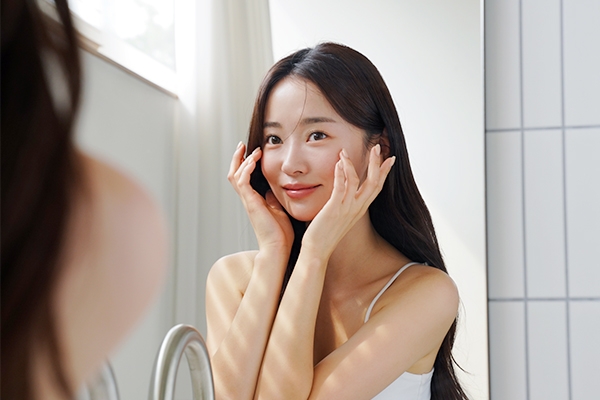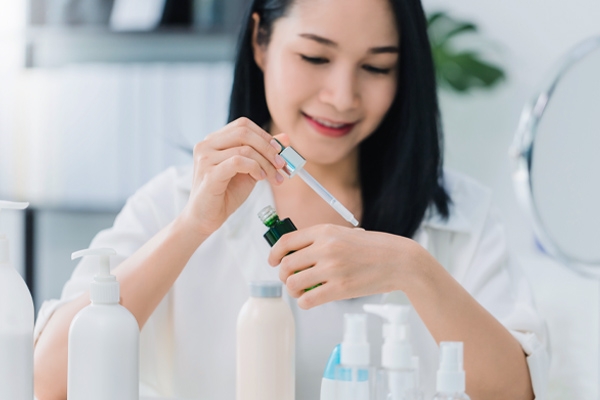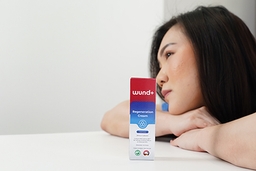Retinol: The Secret to Youthful Skin

Retinol has recently become a star ingredient in the world of anti-aging skincare. This active ingredient is claimed to be able to boost collagen production and help fight signs of aging. It is no surprise that retinol-based products continue to go viral on social media, frequently recommended by beauty influencers and dermatologists.
Retinol and the ever-evolving beauty trend
The skincare industry continues to grow rapidly. In 2022, the beauty and self-care market will reach revenues of US$7.23 billion or around Rp111.83 trillion. Experts predict that this figure will rise at an average annual growth rate of 5.81% until 2027.
Retinol, an anti-aging skincare product, is currently in high demand. Many people turn to this ingredient for its ability to improve skin texture, treat acne, and reduce fine lines and dark spots. But how does retinol really work?
What is retinol?
Retinol is a derivative of vitamin A that belongs to the retinoid family. Compared to prescription retinoids, retinol has a lower concentration of retinoic acid, making it gentler on the skin. It is typically available as a serum, lotion, or cream and is often combined with other ingredients to hydrate and brighten the skin.
Because of its gentler nature, retinol usually takes around six months or longer to show noticeable results. However, with consistent use, its benefits to the skin are significant.
Benefits of retinol for the skin

Here are some of the main benefits of retinol in skin care:
1. Treating acne
Retinol helps prevent clogged pores that can lead to breakouts. At first, the skin may experience "purging" or cleaning, where acne appears more. This is a normal process before the skin begins to improve.
2. Fading acne scars
Acne scars are formed due to inflammation and skin damage. Retinol accelerates skin cell regeneration, helping scars fade faster. However, for deeper or more prominent acne scars, additional treatment may be needed.
3. Reduces dark spots and hyperpigmentation
Sun exposure can cause hyperpigmentation or dark spots on the face, hands, and neck. Retinol works by speeding up skin cell turnover, helping to reduce the appearance of dark spots.
However, it takes several months to take effect and can be irritating to sensitive skin. If you have persistent hyperpigmentation, consult a dermatologist.
4. Improves skin texture
Retinol speeds up the process of skin cell regeneration, making skin feel smoother and skin tone more even.
5. Reduces fine lines and wrinkles
As we age, our skin loses elasticity due to decreased collagen and elastin production. Retinol stimulates the production of these two important proteins, which reduces fine lines and wrinkles.
Side effects and how to use

Although it has many benefits, retinol also has side effects, especially on skin that is not used to it. Some common side effects of retinol include dry skin, redness, irritation, and mild peeling.
To get maximum benefits with minimal side effects, pay attention to the following usage instructions:
- Use retinol only at night.
- Begin with a low concentration and increase gradually.
- Apply 2-3 times a week, then increase the frequency once the skin is used to it.
- Apply a moisturizer afterwards to minimize irritation.
- Don't forget to apply sunscreen every morning because retinol makes the skin more sensitive to sunlight.
- Avoid the eye area, unless the product is specifically designed for sensitive areas.
When should we start using retinol?
There is no hard and fast rule about when to start using retinol. However, many experts recommend starting in your 20s, especially for those who have acne problems or want to start preventing signs of aging.
Pregnant and breastfeeding women should consult a doctor before using retinol-based products.
**
Retinol is a powerful weapon in skincare, both for fighting acne and signs of aging. However, like all skincare products, the results depend on how to use it properly and be patient in seeing the results. If you have sensitive skin or are prone to allergies, consider alternative active ingredients that are gentler.
Most importantly, since retinol makes your skin more sensitive to sunlight, never forget to apply sunscreen every day!
Do you want to have healthier, glowing skin? Find the best retinol products and consult your dermatologist!
If you want to take better care of your skin, GWS Medika Blok M Clinic, a facial clinic in Jakarta Selatan, provides a variety of professional skin treatments that can help you achieve healthy, beautiful skin!



